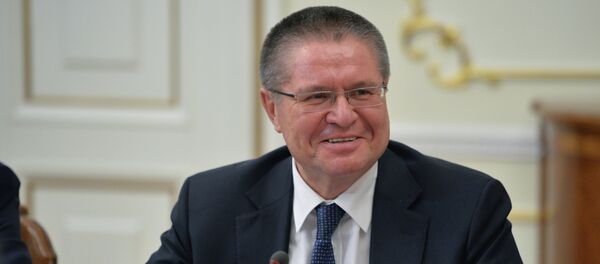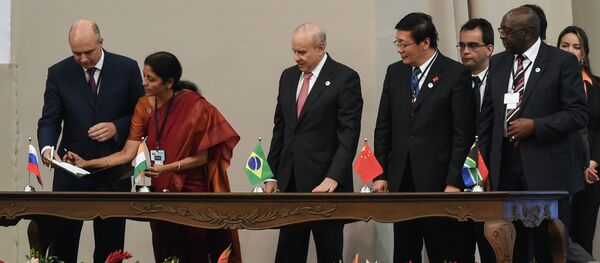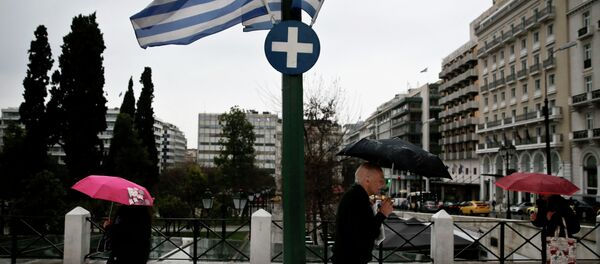International analysts and experts met in Moscow on Thursday for a two-day conference to discuss ways to overcome Russia's ongoing economic crisis.
According to Barry Gills, a professor of political science at the Newcastle-upon-Tyne University, the crisis should be seen as an opportunity for Russia and other BRICS countries.
"The fact that the countries of this group, including Russia, are gradually entering a period of economic difficulties should push them to creating anti-crisis policies not based on the principles of the Washington Consensus and not tied to the WTO," Gills said.
James Midway, senior economist at the London-based New Economics Foundation think-tank said that Russia should not look up to the US and EU countries in overcoming the crisis. According to him, despite news of growth and improvements, those countries' societies have yet to see the results.
"The problem is that nothing was accomplished using neo-liberal economic policy instruments, at least not for a while. That's why in 2015 we still hear the word 'crisis.' But it can actually be defeated," Midway added.
Despite promises of growth and investment in exchange for austerity, Greece only saw social crisis, unemployment and a hopeless situation for youth, Dimitris Patelis, a philosophy adjuct professor at the Technical University of Crete said.
"Now many of us tie hopes to overcoming the crisis with Russia, but for this you don't have to follow IMF instructions and conduct neoliberal policies. You can and must give an example of a different, effective and progressive policy," Patelis said.
The conference, called "Russian Economy and Society at a Crossroads: Overcoming Neoliberalism or Redoubling Crisis," was organized by the Plekhanov Russian Economic University together with the Rosa Luxembourg Fund and Boris Kagarlitsky's Institute of Global Research and Social Movements.





